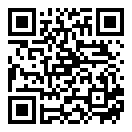Pages:
83-104
Receive Date: 2026/02/04
Accept Date: 2026/02/04
Abstract:
The start of the global Corona crisis with various dimensions and the way governments and organizations faced this surprising crisis was an opportunity to test the effectiveness of the management style in this crisis. The performance of the seminary school in the fervent conditions of the society, which was accused by those opposed to the rule of Islam and the Revolution of starting and spreading this disease, is based on the knowledge of the complex perceptional war scene in crisis management. Using "descriptive phenomenology", the present research seeks to identify the effect of the organizational intelligence components of the Qom seminary in the management of the Corona crisis. Albrecht's "seven-dimensional" model is used to measure organizational intelligence, and the "crisis" four-stage model is used for crisis management. The results show that there is a meaningful relationship between the organizational intelligence of the Qom seminary and the management of the Corona crisis. In addition, according to mixed methods studies, organizational intelligence has some components in the following order of priority: common destiny, courage and bravery, strategic vision, unity and agreement, performance pressure, application of knowledge, and desire to change. In addition, "spirituality" is an important meta-component of the organizational intelligence of the Qom seminary in the management of the Corona crisis.
چکیده و کلیدواژه فارسی (Persian)
Title :بررسی مؤلفههای «هوش سازمانی» حوزهی علمیهی قم در مدیریت بحران کرونا
Abstract:
شروع بحران جهانی کرونا با ابعاد گوناگون و نحوه مواجهه دولت ها و سازمان ها با این پدیده بحرانی غافلگیرکننده، به میدانی برای آزمون کارآمدی سبک مدیریت در این بحران تبدیل شد. عملکرد حوزة علمیه در شرایط ملتهب حاکم بر جامعه که از سوی جریان معارض با حاکمیت اسلام و انقلاب، متهم به شروع و شیوع این بیماری شده بود، مبتنی بر شناخت صحنه جنگ ترکیبی و ادراکی پیچیده در مدیریت بحران است. پژوهش حاضر با روش «پدیدارشناسی توصیفی» به دنبال شناسایی تأثیر مؤلفه های هوش سازمانی حوزة علمیه در مدیریت بحران کروناست. برای اندازه گیری هوش سازمانی از الگوی «هفت بعدی» آلبرخت، و برای مدیریت بحران الگوی چهارمرحله ای «بحران» مبنا قرار گرفته است. نتایج نشان می دهد که رابطه معناداری بین هوش سازمانی حوزه علمیه و مدیریت بحران کرونا وجود دارد. علاوه بر این، هوش سازمانی مطابق بررسی های حاصل از روش های آمیخته، از مؤلفه هایی به ترتیب اولویتی ذیل برخوردار است: سرنوشت مشترک، جرئت و شهامت، بینش راهبردی، اتحاد و توافق، فشار عملکرد، کاربرد دانش، تمایل به تغییر. اضافه بر هفت مؤلفه رصد شده، «معنویت» نیز فرا مؤلفه مهم هوش سازمانی حوزة علمیه در مدیریت بحران کرونا بوده است.
References:
- امامی سیگارودی، عبدالحسین و همكاران، 1391، «روششناسی تحیقی کیفی: پدیدارشناسی»، پرستاری جامع نگر، ش68، ص 69-80.
- امینی، شیما و نورمحمد یعقوبی، 1395، «بررسی تأثیر هوش سازمانی بر مدیریت بحران در کارخانه نیرو کلر اصفهان»، پژوهشهای مدیریت در ایران، ش4، ص 23-44.
- زارعی متین، حسن و همكاران، 1387، «ارائه یک چارچوب کمی تعدیل شده جهت ارزیابی هوش سازمانی»، مدیریت فرهنگ سازمانی، دوره ششم، ش2، ص 51-78.
- عزیزی، ایمان و شکوفه زارع، 1399، سازمان بر بال هوش (هوش سازمانی)، بيجا، راز نهان.
- کافی زارع، محمد و همكاران، 1391، هوش سازمانی، تهران، اسپندگان.
- مسلمی کویری، مینا و هادي عباسی، 1395، «تأثیر هوش سازمانی بر مدیریت بحران (مطالعه موردی شرکت ملی پخش فرآوردههای نفتی ایران)، در: دومین همایش ملی پژوهشهای نوین در حوزه علوم انسانی و مطالعات اجتماعی.
- منطقي، محسن، 1399، «کارکرد هوش سازماني در برنامهريزي راهبردي سازمان»، مديريت فرهنگي، ش 47، ص 51ـ66.
- نظری، نرجس و مهدی صبحانی، 1390، مدیریت بحران، تهران، نگاه دانش.
- ودادی، احمد و همكاران، 1389، «هوش سازمانی و مدیریت بحران (مورد مطالعه، بیمه ایران)، مدیریت کسب و کار، ش5، ص 85-100.
- Akgan, a,e, 2007, "organizational intelligence: structuration view", jornal of organizational changes management, vol. 20, No. 3, p 272-280.
- Albrecht, K., 2003, Organizational Intelligence & Knowledge Management: Thinking Outside the Silos the Executive Perspective.
- Kerfoot, K, 2003, organizational intelligence/ organizational stupidity:the leaders challenge nursing Economics, No.21.
- Matsuda, T, 1992, Organizational intelligence: its significance as a process and as a product.
- Prejnerean M, Vasilache S, 2007, A universities, organizational intelligence, stratrgies standards and debouches, from: www.papers sssrn.com.
Cite this article:
RIS
Mendeley
BibTeX
APA
MLA
HARVARD
VANCOUVER
APA | MLA | HARVARD | VANCOUVER
Mandegar Qalandari, Abolfazl, Manteghi, Mohsen, Zamani, Mohammad Hasan.(2026) Examining the Components of "Organizational Intelligence" in Qom Seminary in Managing the Corona Crisis. Ma`rifat-e Farhangi Ejtemai, 13(3), 83-104
APA | MLA | HARVARD | VANCOUVER
Abolfazl Mandegar Qalandari; Mohsen Manteghi; Mohammad Hasan Zamani."Examining the Components of "Organizational Intelligence" in Qom Seminary in Managing the Corona Crisis". Ma`rifat-e Farhangi Ejtemai, 13, 3, 2026, 83-104
APA | MLA | HARVARD | VANCOUVER
Mandegar Qalandari, A, Manteghi, M, Zamani, M.(2026) 'Examining the Components of "Organizational Intelligence" in Qom Seminary in Managing the Corona Crisis', Ma`rifat-e Farhangi Ejtemai, 13(3), pp. 83-104
APA | MLA | HARVARD | VANCOUVER
Mandegar Qalandari, A, Manteghi, M, Zamani, M. Examining the Components of "Organizational Intelligence" in Qom Seminary in Managing the Corona Crisis. Ma`rifat-e Farhangi Ejtemai, 2026; 13(3): 83-104
 / PhD Student of the Qur'anic Sciences, (Management Sub-Discipline) Al-Mustafa International University / mandegar918@gmail.com
/ PhD Student of the Qur'anic Sciences, (Management Sub-Discipline) Al-Mustafa International University / mandegar918@gmail.com / Associate Professor of Management, the Imam Khomeini Institute for Education and Research / manteghi@iki.ac.ir
/ Associate Professor of Management, the Imam Khomeini Institute for Education and Research / manteghi@iki.ac.ir



